Organometallic Compounds in Synthesis and Catalysis: Recent Advances
A special issue of Molecules (ISSN 1420-3049).
Deadline for manuscript submissions: closed (31 July 2023) | Viewed by 153
Special Issue Editor
Interests: macrocyclic; organometallic chemistry; macrocyclic ligand; metal complexes; synthesis, structure, and properties of organometallic complexes
Special Issues, Collections and Topics in MDPI journals
Special Issue Information
Dear Colleagues,
Organometallic compounds, also termed organometallics, contain at least one direct metal–carbon bond between a main group or transition metal and an organic substrate. They are widely used as intermediates in organic synthesis, where they behave as most efficient catalysts, especially in cross-coupling reactions.
The goal of this Special Issue is to gather a collection of high-standard original works and reviews reporting methods for the synthesis of organometallics and their applications in the field of catalysis. Organometallic chemistry is probably the fastest-growing area of current research, and yet still not a fully developed field of chemistry, being the bridge between inorganic and organic chemistry. Included will be organometallic compounds mainly used as catalysts in the process of polymer production, in delicate chemical synthesis and research, industrial chemical reactions, and medicinal chemistry in general. Organometallics have a preferential place in the field of chemical biology, notably performing functions as enzyme inhibitors, luminescent agents, and also being rather promising as anticancer drugs.
In this Special Issue, we invite scientists to submit their work that will provide useful insights into recent advances in the field of synthesis and catalysis.
Prof. Dr. José Manuel Vila Abad
Guest Editor
Manuscript Submission Information
Manuscripts should be submitted online at www.mdpi.com by registering and logging in to this website. Once you are registered, click here to go to the submission form. Manuscripts can be submitted until the deadline. All submissions that pass pre-check are peer-reviewed. Accepted papers will be published continuously in the journal (as soon as accepted) and will be listed together on the special issue website. Research articles, review articles as well as short communications are invited. For planned papers, a title and short abstract (about 100 words) can be sent to the Editorial Office for announcement on this website.
Submitted manuscripts should not have been published previously, nor be under consideration for publication elsewhere (except conference proceedings papers). All manuscripts are thoroughly refereed through a single-blind peer-review process. A guide for authors and other relevant information for submission of manuscripts is available on the Instructions for Authors page. Molecules is an international peer-reviewed open access semimonthly journal published by MDPI.
Please visit the Instructions for Authors page before submitting a manuscript. The Article Processing Charge (APC) for publication in this open access journal is 2700 CHF (Swiss Francs). Submitted papers should be well formatted and use good English. Authors may use MDPI's English editing service prior to publication or during author revisions.
Keywords
- organometallic compounds
- catalytic chemistry
- anticancer drug
- polymer synthesis
- chemical biology
- synthetic chemical reactions
Benefits of Publishing in a Special Issue
- Ease of navigation: Grouping papers by topic helps scholars navigate broad scope journals more efficiently.
- Greater discoverability: Special Issues support the reach and impact of scientific research. Articles in Special Issues are more discoverable and cited more frequently.
- Expansion of research network: Special Issues facilitate connections among authors, fostering scientific collaborations.
- External promotion: Articles in Special Issues are often promoted through the journal's social media, increasing their visibility.
- e-Book format: Special Issues with more than 10 articles can be published as dedicated e-books, ensuring wide and rapid dissemination.
Further information on MDPI's Special Issue polices can be found here.






